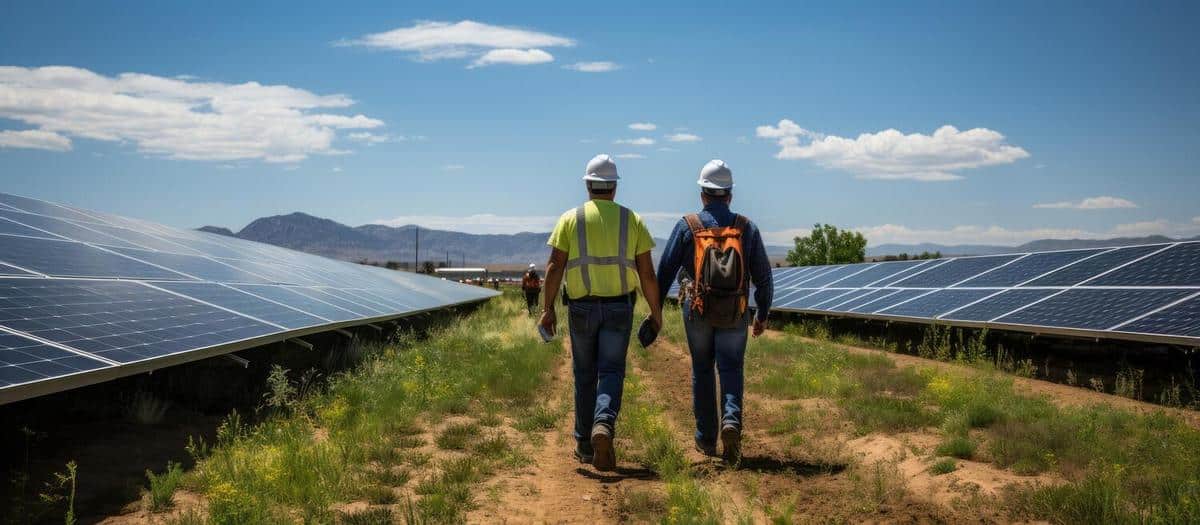
Sustainable Agriculture: Key to Combating Global Warming
Sustainable agriculture is emerging as a pivotal factor in the global effort to combat climate change. By adopting eco-friendly farming practices, we can significantly reduce greenhouse gas emissions and promote a healthier planet.
As the agricultural sector continues to grapple with the impacts of global warming, experts are increasingly advocating for sustainable practices that can mitigate these effects. According to a report by the Food and Agriculture Organization (FAO), agriculture is responsible for about 10-12% of global anthropogenic greenhouse gas emissions. However, the implementation of sustainable agriculture can turn this around by enhancing carbon sequestration and reducing emissions.
Expert Insights on Sustainable Agriculture
Dr. Maria Hernandez, a climate scientist, emphasizes that sustainable farming techniques such as crop rotation, permaculture, and agroforestry can significantly lower carbon footprints. These practices not only help in sequestering carbon but also improve soil health and biodiversity.
The Role of Research and Statistics
Research conducted by the Intergovernmental Panel on Climate Change (IPCC) highlights that sustainable agriculture could potentially offset up to 20% of current agricultural emissions. By focusing on reducing methane emissions from livestock and improving fertilizer efficiency, farmers can play a crucial role in climate change mitigation.
Personal Anecdotes and Examples
Take the example of Mike, a farmer from Iowa, who transitioned to no-till farming. This method helped him retain soil moisture and reduce erosion, proving beneficial not only for his yield but also for the environment. Such stories inspire other farmers to adopt sustainable practices.
Actionable Tips for Sustainable Farming
- Implement crop rotation and polyculture to enhance soil fertility.
- Adopt conservation tillage to reduce soil disturbance.
- Utilize organic fertilizers and pesticides to minimize chemical use.
- Incorporate cover crops to prevent soil erosion.
Consider integrating livestock and crop production to recycle nutrients efficiently and enhance farm sustainability.
Comparing Traditional and Sustainable Agriculture
| Aspect | Traditional Agriculture | Sustainable Agriculture |
|---|---|---|
| Soil Health | Often Depleted | Enhanced |
| Water Usage | High | Moderate |
| Chemical Use | High | Low |
| Biodiversity | Reduced | Improved |
| Carbon Footprint | High | Low |
| Yield Stability | Variable | Stable |
| Economic Sustainability | Vulnerable | Resilient |
| Community Impact | Limited | Positive |
Frequently Asked Questions
What is sustainable agriculture?
Sustainable agriculture involves farming practices that are environmentally friendly, economically viable, and socially responsible.
How does sustainable agriculture help combat global warming?
It reduces greenhouse gas emissions, enhances carbon sequestration, and improves biodiversity, all of which are essential in mitigating climate change.
What are some examples of sustainable farming practices?
Examples include crop rotation, agroforestry, conservation tillage, and organic farming.
Conclusion
Sustainable agriculture presents a viable solution to combat global warming. By adopting these practices, not only do we contribute to a healthier planet, but we also ensure food security and build resilient farming systems. It’s essential to support and promote these practices across the globe, encouraging more farmers to make the transition.
For more information on sustainable agriculture practices, you can visit reputable sources such as the Food and Agriculture Organization or the Intergovernmental Panel on Climate Change.


